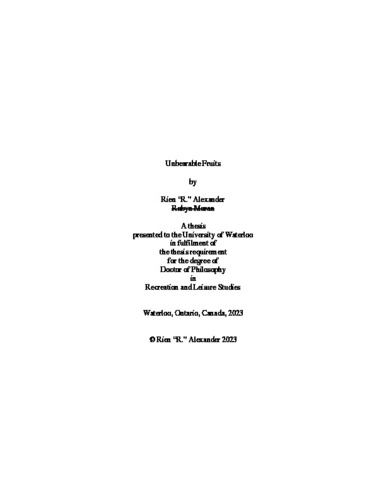| dc.description.abstract | Counter to my bodily instincts, abstract writing demands we make something evident in the interest of time (Loveless, 2019). I’ve been state power, settler colonialism, neighbourhood change and/or gentrification, queer politics, homonationalism, mobilities, and placemaking (or place-taking and place un-making). Accordingly, I have situated at the nexus of political economy (i.e., neoliberalism, rainbow capitalism, racial capitalism) and “the cultural politics of emotion” (i.e., affect theory). I've organized the fruits of this labour in three manuscripts (crucially, supported by a handful of addendums, audio-visual, and arts-based components). Across this work, I argue that although "gentrification" lacks consensus definition or measure, as we move towards a more entangled understanding, identification with neighbourhood change processes like 'gentrification' (e.g., an emerging sense of loss, fear of change, felt exclusion, attuning to power) may produce an uncomfortably self-aware political dissonance, where Canadian settler colonialism is operates quietly through the (re)production of queer space. This tension is well symbolized by the growing tendency to include Indigenous design motifs (e.g., a medicine wheel, purple symbolizing Two Row Wampum) as part of the now commonplace rainbow crosswalk. In our worried clammer for cultural sustainability, memorialization, and/or to save the gaybourhood and gay bar from its post-gay demise, have we ignored the ways queer placemaking may also be place-taking? With that in mind, I guess I am left wondering: Why would someone ever want to read this document? It's grievous stuff. “Unbearable,” insofar as the relief from one anxiety simply affords another, resulting in what Berlant (2022, p. 151) described as “a threat that feels like a threat.”
I don’t want to be “here” (Jones et al., 2020, p. 402). | en |

